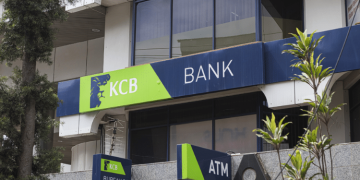The Kenya Revenue Authority (KRA) has issued a way forward after recent reports that highlighted concerns raised by traders at the Eldoret Kenya Pipeline Company (KPC) Depot.
KRA in a statement dated July 4 said the concerns include system downtimes, truck congestion, and allegations of staff misconduct.
In response, KRA, KPC, and other relevant agencies held a stakeholder engagement meeting with the affected parties.
To address the issues raised and ensure the smooth resumption of operations at the depot, the meeting resolved to temporarily deploy additional staff to the facility.
“This measure is aimed at enhancing service delivery and mitigating operational disruptions,” KRA said.
KRA Outlines Measures to Address Kenya Pipeline Congestion
KRA said it is also finalizing the system integration and re-engineering of the transit process to boost efficiency.
“It was further agreed that the electronic monitoring sheet introduced to monitor and track, in real time, the processing and movement of trucks within the yard, be retained and updated consistently,” the statement read further.
According to the taxman, the goal is to clear the existing backlog of trucks, prevent further disruptions, and restore seamless service delivery to all stakeholders.
Further evaluations and necessary actions will be undertaken to address any underlying issues identified during the engagement.
The authority stated that it remains committed to upholding the highest standards of integrity, professionalism, and accountability in all its operations.
“Any conduct that undermines public trust or compromises service delivery is unacceptable and will be dealt with decisively,” the taxman said.
Also Read: Explained: Customs Bond Compliance for Kenyan Traders
At the same time, KRA said all concerns relating to staff conduct and operational inefficiencies will be thoroughly investigated, and appropriate disciplinary or corrective measures taken where necessary.
This comes few days after demonstrating stakeholders camped outside the Eldoret Depot, alleging delays in service delivery by the Authority.
In response to the outrage, KRA clarified that the allegations are untrue and misleading, noting that the July 2 temporary delays were due to a routine KPC system rollover at the depot that affected the issuance of Bills of Lading (BOLs) until around midday.
System Integration Ushers in Real-Time Truck Clearance
The authority explained that this innovation, supported by the recent integration of KRA and KPC systems, has replaced the manual folder-based clearance with a streamlined online process.
Also Read: KRA Announces Changes Affecting All Importers and Exporters
Under the new system, truck clearance data is submitted via a shared spreadsheet by KPC and Oil Marketing Companies (OMCs) through their agents. KRA officers then process and release the trucks digitally and provide feedback on the same platform.
The benefits of the transformation include real-time tracking of each truck’s processing stage, enabling OMCs to know the exact status and clearance timelines; transparent queuing that eliminates biased processing of trucks and ensures fairness.
Improved accountability, as all stakeholders can see which trucks are loaded but not yet cleared.
The innovation will also reduce operational costs for OMCs and agents, who no longer need to engage additional personnel for paperwork and physical follow-ups.
Additionally, it will facilitate live data reporting on truck loadings, eliminating the need for manual data entry.
Follow our WhatsApp Channel and X Account for real-time news updates.
















































![Odemba Names Provisional Harambee Starlets Squad For 2026 Wafcon Qualifiers [Full Squad] Odemba Names Harambee Starlets Squad For 2026 Wafcon Qualifiers](https://thekenyatimescdn-ese7d3e7ghdnbfa9.z01.azurefd.net/prodimages/uploads/2025/10/odemba-2025-360x180.png)




























But indeed by having competent officials at the helm,do we have to really have to work with ‘reactive management models’ in this time and age?I strongly believe the KRA team at large should work with the proactive model and not necessarily have kenyans complain and say they are now attending to the complaints.
It is should be indeed wake up call for all involved to have a more proactive approach and in way instill confidence to kenyans who are really feeling the pinch where they commit to give taxes but in return get such kind of responses🤦♂️🤦♂️🤦♂️🤦♂️🤦♂️